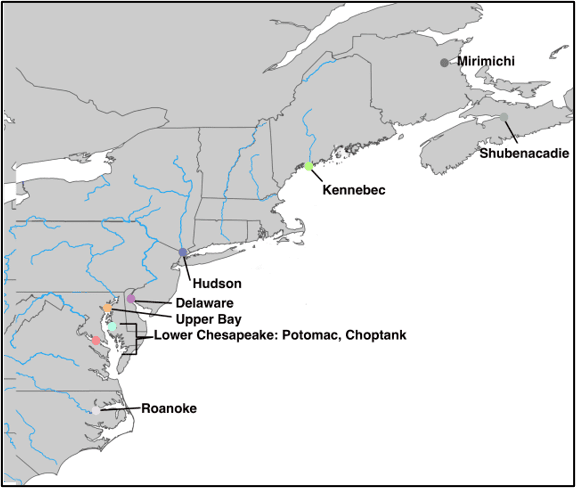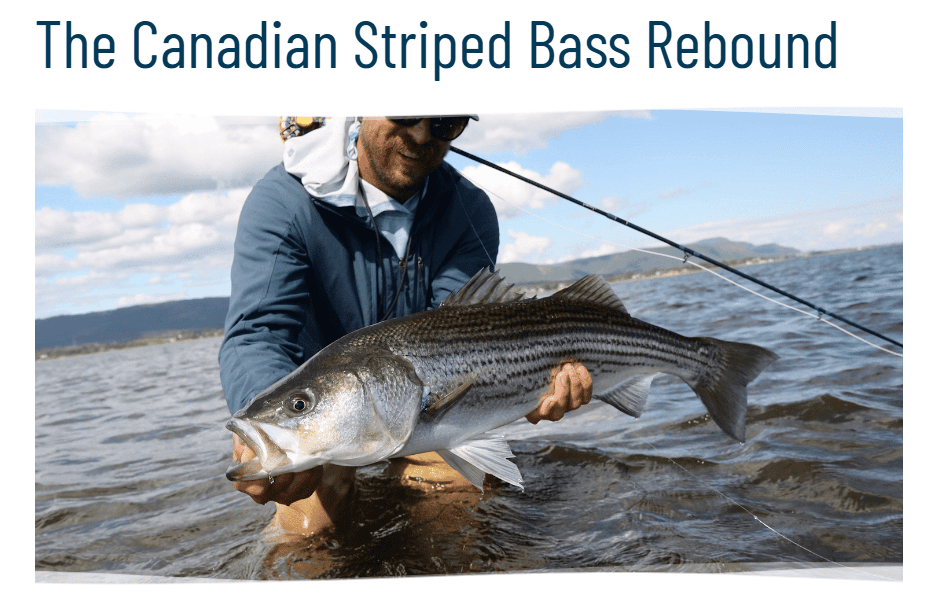In 2018, funding provided through New Hampshire Sea Grant and collaboration with fishers like you, allowed us to conduct the most extensive study on migratory striped bass to date. The first objective was to develop a panel of genetic markers that would provide the tool to differentiate among the major Atlantic spawning stocks. This genetic panel was constructed using “reference” samples collected from spawning adults or <1yr old juveniles so we could ensure they were from the locations of interest. The panel was completed, successfully tested, and published in 2023 giving us the necessary tool to start applying it to our Northeast fishery.
While developing the reference panel, we networked across the region from New York to Maine and began collecting fin clip samples. The support and participation from the striped bass fishing community was outstanding. Over the course of two fishing seasons (May-November) in 2018-2019, we obtained 5,400 fin clips with corresponding data collected by 36 different collaborators. This eventually allowed for a detailed description of when and where striped bass of different sizes and populations are migrating northward and then southward throughout the region.
CONCLUSIONS AND FUTURE DIRECTIONS
- The Chesapeake Bay and Delaware River fish were too genetically similar to differentiate using our panel; together they contribute 80-88% of striped bass to the fishery
- The Hudson river system contributes 10-18% of fish
- 1-2% of fish originated from the Roanoke River or could not be assigned to any of the reference populations
- There were no size/age distribution differences noted among the stocks
- Results of this project differ from some previous studies since the 1980’s due to our sampling strategy and likely fluctuations in major contributing year classes
- Striped bass management informed by genetic stock assignments could improve the resilience of the fishery
- Enthusiastic participation by the fishing community demonstrates future potential for a role of citizen scientists in striped bass management
Read More: The Canadian Striped Bass Rebound
American Saltwater Guides Association article about the stock of Canadian striped bass. See the article here.


